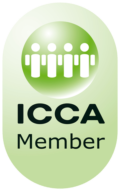Ethiopia’s manufacturing sector has exhibited continuous growth over recent years, with the availability of cheap hydropower, and the Government’s commitment to a strategy of transformation from an agriculture-led economy to that of industry. There has been massive growth in infrastructure development as well as steps taken in deploying the necessary human power for the sector. The country’s industrial development policy has explicitly targeted FDI with the expectation of entering the global market with competitive commodities to increase foreign exchange earnings. In Sub-Saharan Africa, Ethiopia is emerging as one of the preferred destinations for labor-intensive businesses, especially those in the garment and textile industry. These businesses are taking advantage of the country’s low labor cost environment. The Ethiopian government is also pursuing business-friendly structural reforms, including pledging to open up key sectors, such as telecommunications, air transport, and logistics, that were previously closed to foreign participation. Investors are provided with attractive incentives including favorable land lease rates, access to commercial credit, duty-free imports of inputs, and generous tax breaks.

Opportunities
The main manufacturing industries in Ethiopia are food processing, beverages, textiles, leather, garments, chemicals, metals processing, and cement. The manufacturing sector however still has a low impact on total exports (around 15% in 2017) but is expected to grow in the coming years with many opportunities for development available. Recently, a large number of companies have outsourced their textile production from Asia to Ethiopia.


